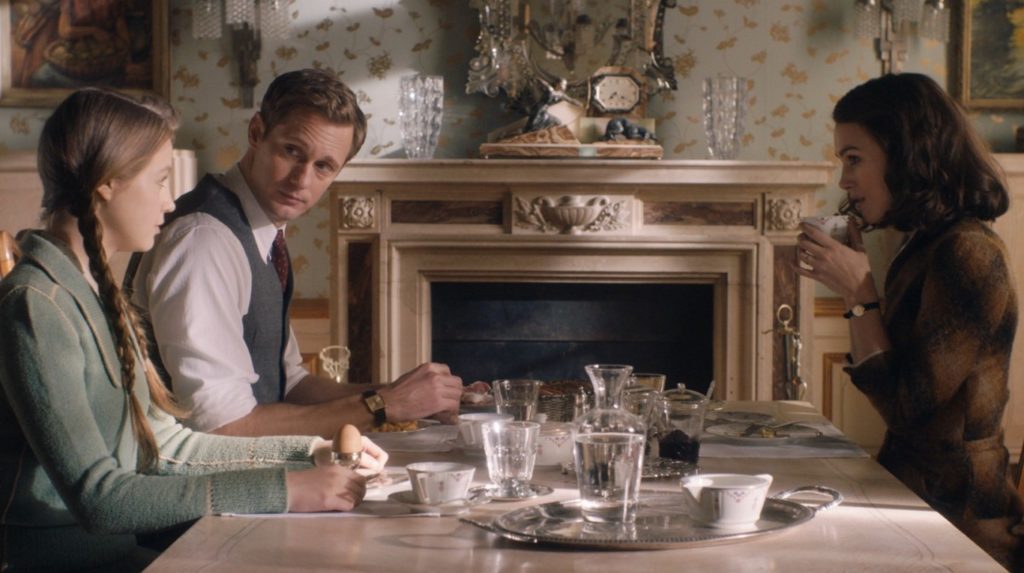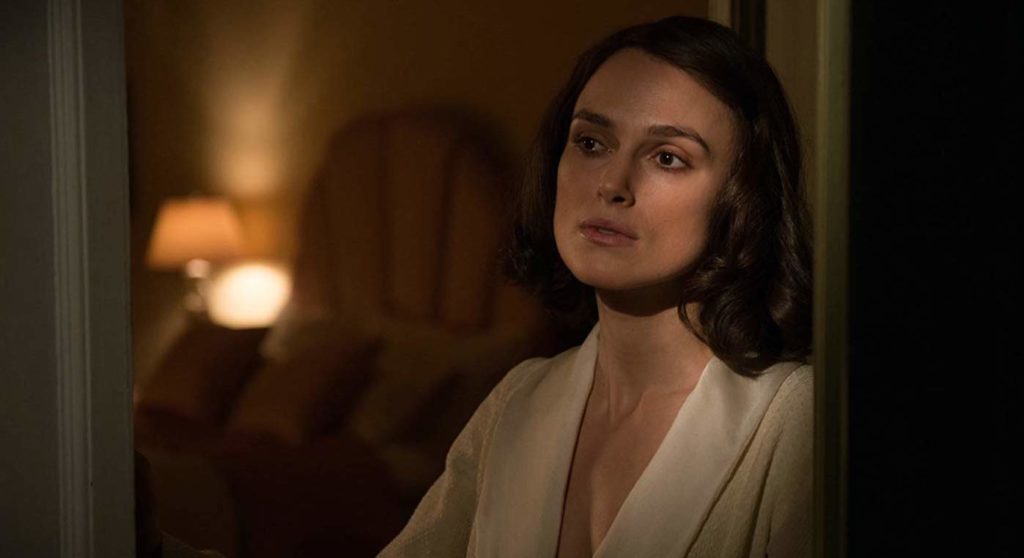Summary
If you take away The Aftermath’s post-war Reconstruction of Germany’s setting, what you have is a lonely housewife having an affair with a pool boy, and a lonely couple in desperate need of a premium cable subscription.
The Aftermath plays out like the setting it takes place in; weirdly distant and feels as if you are checking your watch to find out how much time you have left. The period-romance drama is a throwback to inept films of the ’80s and ’90s, where they take a major event as a backdrop as an excuse to tell a romance novel on the big screen. Shining Through, the 1992 Michael Douglas and Melanie Griffith romantic World War Two drama, is a good example of this. Using the fight against Hitler to highlight a great romance.
When you strip away James Kent’s setting of the Reconstruction of Germany, all you have is a desperate housewife having an affair with the pool boy. To make matters worse, the script by Joel Shrapnel and Anna Waterhouse tries so hard to make everyone likable in some way. There is no real allegiance to pin your hat to.
Based on the novel by Rhidian Brook, of the same name, the film is set during postwar Hamburg, Germany. All during a cold winter in 1946. Rachael Morgan (Keira Knightly) steps off a train to meet her estranged (being a colonel in the British army during WW2 will do that) husband Lewis (Pet Sematary’s Jason Clarke), whose job has been rebuilding a city that bomb strikes have obliterated.
Strangely, even though they are there to help the citizens of Hamburg, families are displaced from the homes that remain standing in camps to make room for British soldiers. Rachael and Lewis are about to move into a despondent German widower (Alexander Skarsgard) house, complete with a staff, and his daughter Freda (Flora Thiemann), whose idealist passions are endangering their place in their home when the camps are just a few miles away.

Of course, nothing good can come of a lonely yet beautiful wife in the same house, with a husband who is never home. A man who is a handsome, tall, blonde-haired man that looks like what Hitler envisioned when he wanted to take over the world. He happens to chop a lot of wood in front of her. The lack of a premium cable subscription to pass the time doesn’t help matters. Skarsgard and Knightley do generate a fair amount of heat. Still, it’s a romance based on their characters reaching out to one another based on personal losses. The way it unfolds is not natural and feels forced upon us from the moment Rachael walks into the house.
Then there is the issue of Jason Clarke, who I am starting to worry is going to develop a complex as he keeps getting typecast into roles as the husband or boyfriend women either cheat on (The Aftermath, Mudbound), want to leave (The Great Gatsby), or even kill (Serenity). Lewis’s character is the only three-dimensional character in the film. It gives a moving performance of a man of conviction who has been carrying a great sorrow. He has no way to release it. It’s a performance that sneaks up on you by the end of the film. I am not sure enough to see it before turning it off and moving on to something else.
There is a difference between war-torn romances like The Aftermath compared to masterpieces like Cold War. The setting in the Kent drama subplots is contrived, erroneous, and far south as being nuanced as it is one can get. While pleasing to the eye, Aftermath’s attempt at romance and the reconstruction period is in vain in the way it only goes skin deep for most of the script. James Kent’s film would have been much more interesting if they tackled the setting as its central theme, let the romantic betrayal be a subplot, then turn a contrived storyline of German protests into something subtler and more meaningful.



